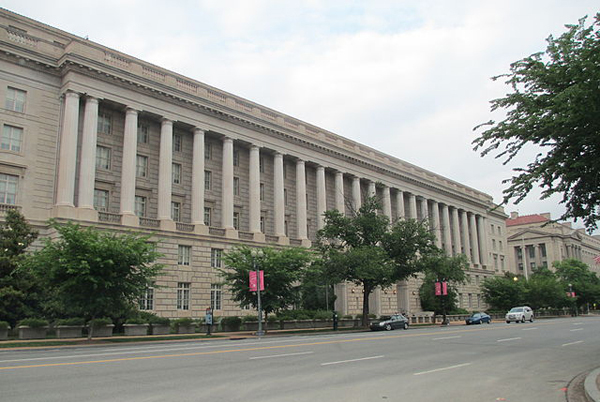- Fragile Planet Offers a Nighttime Wildlife Experience
- Falcons Soccer Off & Running
- Cameron County Receives Funds to Improve Two Parks
- Falcons Complete First Half of 32-6A
- School District to Help out Victims of California Wildfires
- Sand Castle Days Continued Despite Unexpected Weather
- Ready for District
- Discussion of Garbage Dumpster Rates, Agreements Between State & City on Highway Regulations, and More
- 31st Annual Shrimp Cook-Off is Right Around the Corner
- LFHS Cross Country
Corporations Admit to Tax Havens, Avoiding $600 Billion in U.S. Taxes
- Updated: April 24, 2015

The Internal Revenue Service (pictured) will not collect up to $600 billion from dozens of U.S. multinationals using tax havens, according to a new report. At the end of 2014, 304 Fortune 500 companies collectively held $2.15 trillion in countries like Bermuda, the Cayman Islands, and the Bahamas. Photo: Joshua Doubek/Wikimedia Commons.
by Eric Galatas/TNS
AUSTIN, Texas – Congressional hearings in the past few years made headlines exposing how Apple and Microsoft moved money overseas to avoid paying U.S. taxes. But as a new report shows, these name-brand companies aren’t alone.
Matt Gardner, executive director with the Institute on Taxation and Public Policy, says companies that we know use offshore tax havens include Nike, Safeway, American Express, Bank of America, Wells Fargo, the pharmaceutical giant Amgen, and the list goes on. He says the impact on the U.S. Treasury is significant.
“If these companies paid the U.S. taxes that they ought to be paying on this income, we’d be talking about $600 billion,” says Gardner.
At the end of 2014, 304 Fortune 500 companies collectively held over $2 trillion in countries like Bermuda, the Cayman Islands, and the Bahamas, places which Gardner points out provide very little in the way of real business opportunities for American corporations like Qualcomm, Safeway, and Microsoft.
Gardner adds, many corporations that fail to disclose whether their offshore holdings are tax havens are the same ones lobbying congress to enact a temporary “tax holiday” or a permanent exemption for offshore income. He says both proposals would only reward companies for shifting profits overseas, and that average Americans would end up footing the bill.
“When corporations don’t pay their fare share, really the impact is that the rest of us, middle income families and small businesses, pay more to make up the difference,” he says.
The report recommends Congress act sooner than later to put a stop to tax havens. Gardner says 77 of the companies surveyed increased their declared offshore cash by at least $500 million each in the last year alone.
